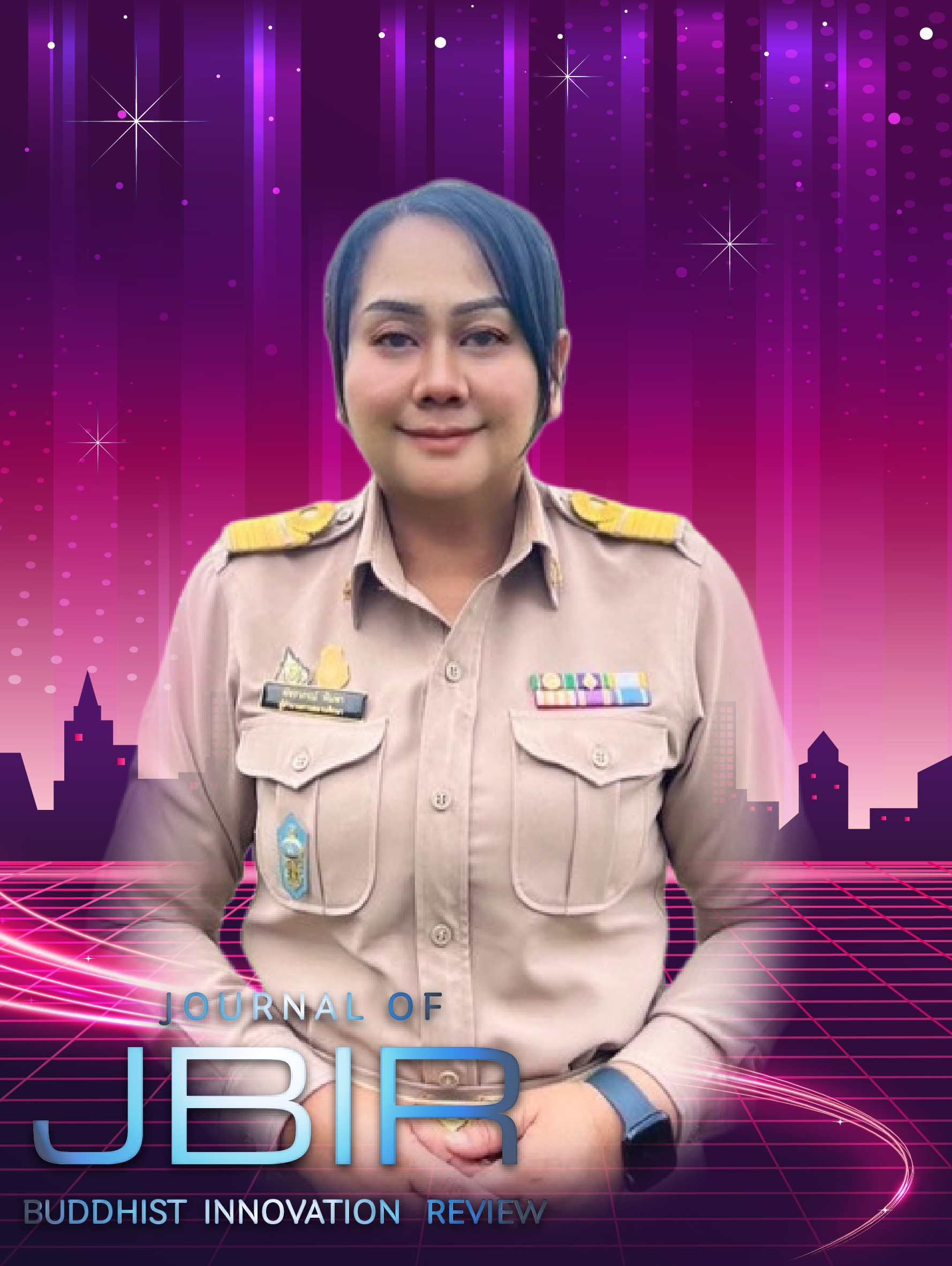The Cultivating Morality of Buddhist way school students In the Sa bot School Group Under the Lopburi Primary Educational Service Area Office. District 2
Main Article Content
Abstract
This Research Article have aims: 1. To study the principles. concepts. theories of learning management of Buddhist school students in Thai society. 2.To study the Buddhist principles used for integration to instill morality in students of Buddhist schools in the Sarabos School Group under the Office of the Primary Educational Service Area 2. Lopburi and 3. To present knowledge on instilling morality in students of Buddhist schools in the Sarabos School Group under the Office of the Primary Educational Service Area 2 . Lopburi. Qualitative research methods were used by studying documents. related research. and in-depth interviews with 24 key informants. Data were analyzed and presented in a descriptive and analytical format.
The research results found that the principles of student learning management consisted of the curriculum. Active Learning. a learning management process in which students practiced. promoted student participation. created interactions between teachers and students. and obtained a thinking process about what they had done.
There were learning media to create interest in students. There was measurement and evaluation of actual practice. As for the Buddhist principles used for integration in instilling morality. That is the Trisikkha principle. consisting of precepts. concentration. wisdom. the 8 basic moral principles. presenting knowledge through the TRISIKHA S3 model. consisting of T: setting goals R: problem solving methods I: promoting interaction S: strengthening the body. speech and mind I: a good example to others K: kind. having a good mind H: being happy in learning A: being able to apply it in daily life S3 consists of S1: (precepts) behavioral aspect S2: (concentration) mental aspect S3: (wisdom) wisdom aspect. resulting in students' higher learning achievement. having desirable characteristics. being smart. good and happy people.
Article Details

This work is licensed under a Creative Commons Attribution-NonCommercial-NoDerivatives 4.0 International License.
เรื่องลิขสิทธิ์/เป็นความคิดเห็นของผู้เขียน
References
Books :
Dhamma Pitaka (P.A. Payutto). (2000). Ethics for the new generation. Bangkok: Buddhadham Foundation.
Duangduean Pantumnawin. (2001). Ethical development. Bangkok: Behavioral Science Research Institute Srinakharinwirot Prasarnmit University.
Kulisara Jitchayawanich. (2019). Learning management. Bangkok: Chulalongkorn University Press.
Mahachulalongkornrajavidyalaya University. (2004). Buddhist Way School. Bangkok: Mahachulalongkornrajavidyalaya Printing House.
Ministry of Education. (2009). Basic Education Core Curriculum 2008. Bangkok: Ministry of Education.
Ministry of Education. (2011). National Education Development Plan No. 10. Bangkok: Ministry of Education.
Nirada Wechayalak. (2018). Principles of learning management. Bangkok: Chulalongkorn University Printing House.
Tisana Khaemmanee. (2010).Teaching science: knowledge for organizing an effective learning process. 12th printing. Bangkok: Chulalongkorn University.
Journal :
Wittaya Thongdee. (2012). Humans and the learning process according to Buddhism. Journal graduate Studies Review Khon KaenCampus. (September–December). 8 (3); 37-48.
Thesis:
Anussara Chalermsri. (2020). Developing the ability to organize active learning of primary teachers through the professional learning community process. Ph.D of Philosophy Field of Study: Educational Science and Learning Management. Faculty of Education Srinakharinwirot University.
Kingkan Buranasinwathanakul (2019). Study the research report on Development of educational board game learning media to promote learning ability in the subject of Thai language learning development and happiness in learning for undergraduate students. Graduate study. Program Thai language major Faculty of Humanities Srinakharinwirot University.
Payung Sriwangso. (2018). Development of assessment standards based on actual conditions of primary school teachers Office of the Basic Education Commission using the research process Participatory workshop. Ph.D of Philosophy Educational measurement and statistics research field. Faculty of Education, Burapha University.
Phonthep Phophan. (2019). Development of training curriculum for fundraising for education of basic educational institutions. Ministry of Education. Ph.D of Education dissertation Field of study: Educational Administration and Development. Mahasarakham University.
Sittharat Songrumram. (2020). A model for living a happy life according to Buddhist principles for youth. Study the case of Saraburi Witthayakhom School Saraburi Province. Doctor of Philosophy Thesis Department of Buddhism. Graduate School: Mahachulalongkornrajavidyalaya Universitya.
Surangkana Tuetisorn. (2022). Cultivating morality in kindergarten students using Buddhist Integration.
Doctor of Philosophy Thesis Department of Buddhism. Graduate School: Mahachulalongkornrajavidyalaya University.
Thaweesak Thongthip. (2011). Educational institution administration using the Threefold Principles of Wat Phra Phutthabat Khao Kradong School, Mueang District. Buriram Province. Master of Buddhist Studies Thesis. Graduate School Mahachulalongkorn-rajavidyalaya University
Wanida Kamponrat (2022). learning management model according to the three principles of students for affiliated schools Bangkok. Doctor of Education Dissertation Department of Buddhist Educational Administration Graduate School: Mahachulalongkornrajavidya-
laya University.
Interview:
Aranya Paitoon. Teacher at Ban Khlong School. (Interviewed 26 December 2023) Saranya Inthawisit. Parents of students at Sa Bot Kindergarten School. (Interviewed 26 December 2023)
Phrakru Wichit Thampitak. Dr. Deputy Abbot of Khok Samrong District Wat Khao Chorakae. (Interviewed 28 December 2023)


